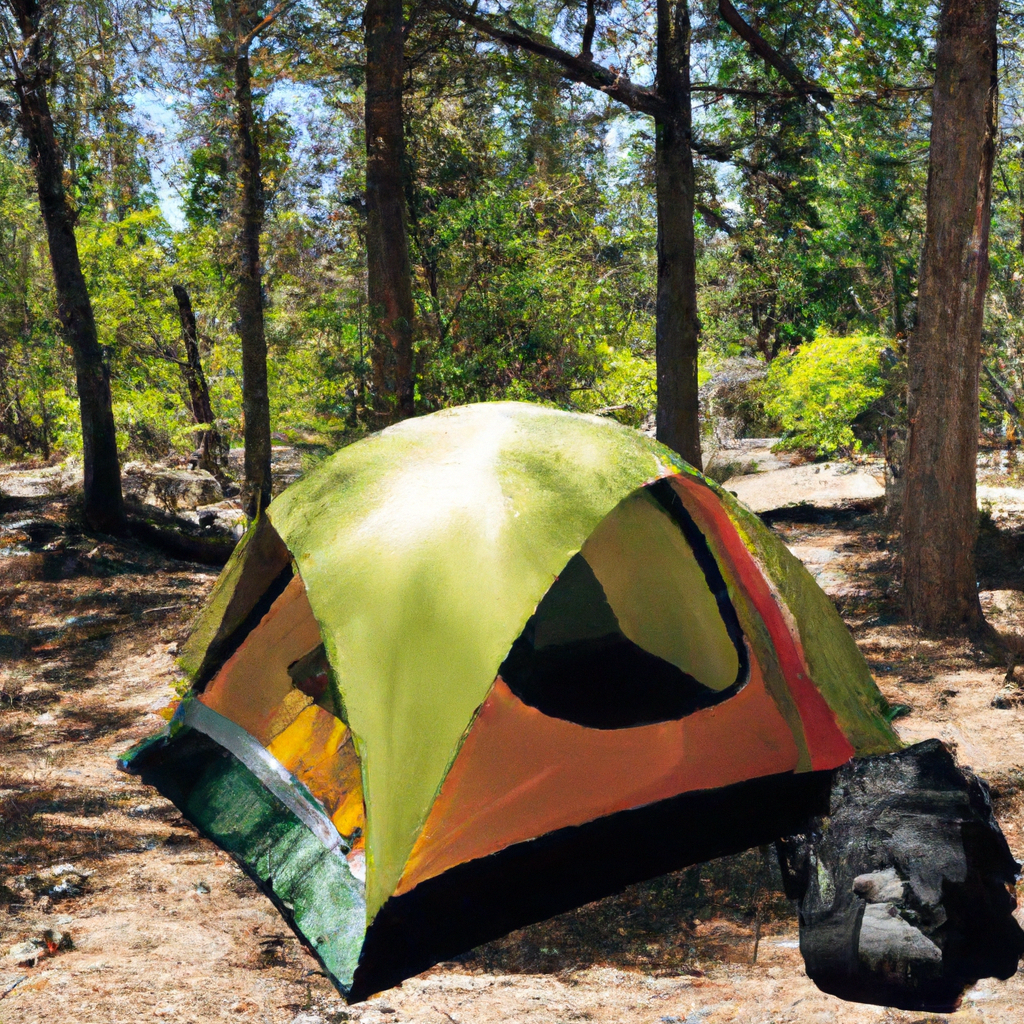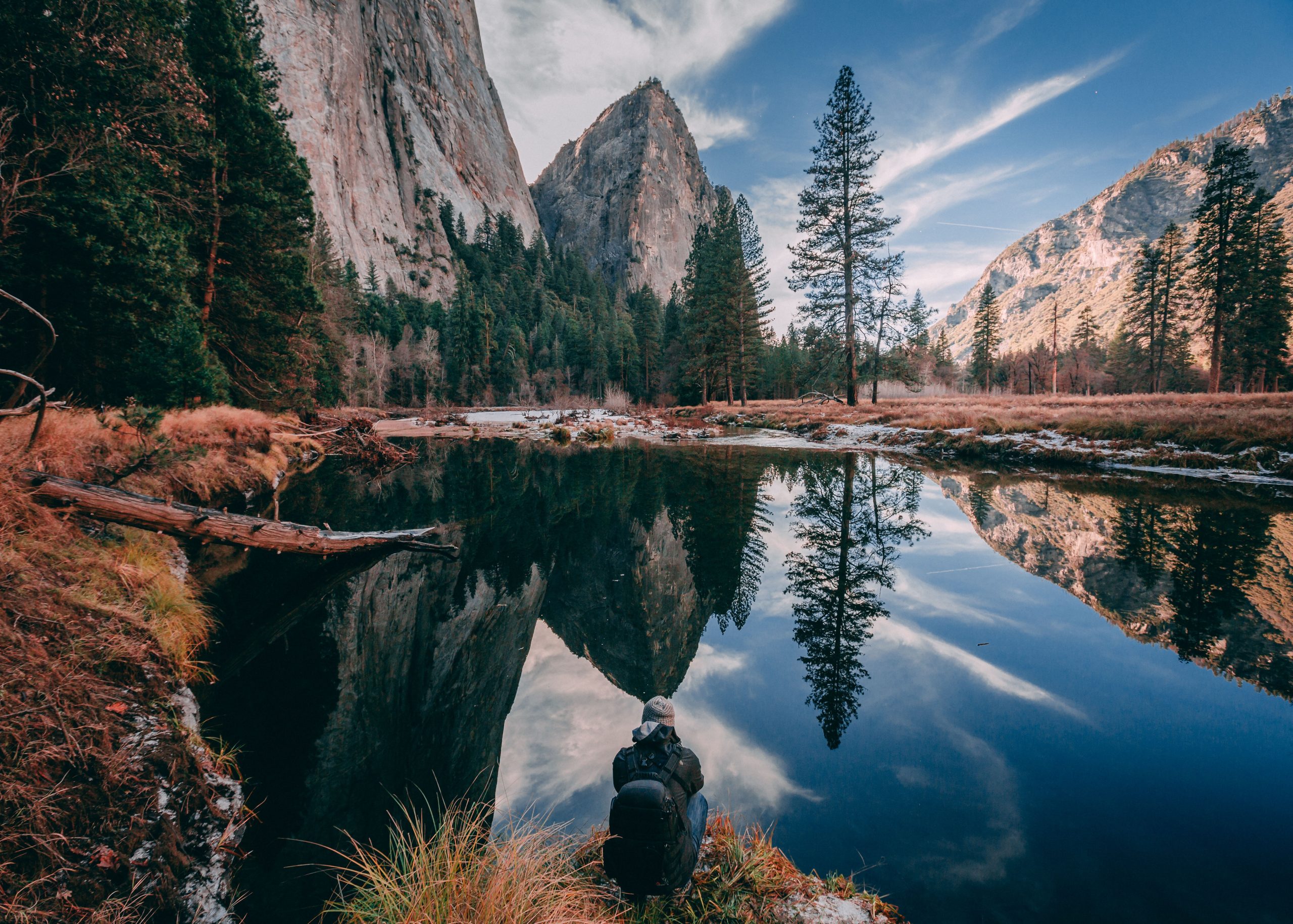Imagine this: you’re on a breathtaking adventure in one of the stunning national parks, surrounded by towering trees, majestic mountains, and wildlife in their natural habitat. But suddenly, you find yourself grappling with the question, “What is the fine for illegal camping in national parks?” It’s a valid concern, as we all want to ensure we are abiding by the rules and preserving these remarkable spaces for future generations. In this article, we’ll explore the answer to this pressing question, providing you with the necessary information to navigate your outdoor escapades responsibly and enjoy the beauty of national parks without any trouble.

Overview of illegal camping in national parks
Definition of illegal camping
Illegal camping in national parks refers to the act of camping outside designated areas or engaging in activities that are prohibited by park regulations. These regulations are established to protect the fragile ecosystems and wildlife within the parks, ensuring their preservation for future generations. Camping is only permitted in designated areas and following specific guidelines to minimize any negative impacts on the environment.
Types of illegal camping activities
Illegal camping can take various forms, including wild or dispersed camping, which involves setting up camp in unauthorized areas without designated facilities such as restrooms or fire pits. Other illegal activities may include exceeding the allowed camping duration, camping in closed areas, camping in non-designated zones, or leaving campsites without properly disposing of waste. It is important to be aware of and adhere to the specific regulations of each national park to avoid engaging in any prohibited camping activities.
Reasons why illegal camping is prohibited
Illegal camping is prohibited in national parks to protect the delicate ecosystems and wildlife that inhabit these areas. The natural resources found within these parks are often susceptible to damage from human activities, such as trampling vegetation, polluting water sources, and disturbing fragile habitats. To ensure the natural integrity of the parks is maintained, regulations are put in place to manage and control the camping activities of visitors.
Consequences of illegal camping
Potential harm to the environment
Engaging in illegal camping activities can have severe consequences for the environment. Unregulated camping can lead to the destruction of delicate vegetation, soil erosion, and contamination of water sources. Additionally, the increased human presence in unauthorized areas can disturb the natural balance and disrupt the habitats of wildlife. Protecting the environment is a key priority in national parks, and illegal camping undermines these conservation efforts.
Negative impact on wildlife
National parks serve as crucial habitats for a diverse range of plant and animal species. Engaging in illegal camping activities can disturb wildlife, leading to unnecessary stress, habitat destruction, and disruption to feeding and mating patterns. Campers who leave food or waste unsecured may attract animals, leading to aggressive behavior and potential conflicts between humans and wildlife. By adhering to park regulations and camping only in designated areas, visitors can reduce their negative impact on wildlife.
Erosion and damage to natural resources
Unregulated camping can result in erosion and damage to natural resources within national parks. Pitching tents or setting up campfires in unauthorized areas can lead to damage to the soil and vegetation, as well as potential wildfires. Trampling vegetation and walking in fragile areas can exacerbate erosion, compromising the stability of the ecosystem. It is crucial to camp in designated areas and follow the guidelines to minimize any harm to the natural resources that make national parks unique.
Jurisdiction and enforcement
Federal laws governing national parks
National parks are governed by federal laws, which establish the framework for park management and regulations. The National Park Service (NPS) is responsible for overseeing these laws and ensuring their enforcement to protect the park resources and maintain visitor safety. Federal laws provide the basis for the establishment of specific rules and regulations for each park, which visitors are expected to abide by while enjoying the park’s beauty and recreational opportunities.
Specific regulations for each park
While there are federal laws governing national parks, each park has its own set of specific regulations tailored to its unique characteristics and conservation needs. These regulations may include restrictions on camping locations, duration limits, reservation requirements, and guidelines on waste disposal. It is essential to familiarize yourself with the specific regulations of the park you plan to visit to ensure compliance and prevent any illegal camping activities.
Role of park rangers and law enforcement agencies
Park rangers play a vital role in educating visitors about park regulations and enforcing them to maintain order and protect the park resources. They have the authority to issue citations and fines to individuals found engaging in illegal camping activities. Additionally, law enforcement agencies, such as the U.S. Park Police, may be called upon to assist with enforcing park regulations and ensuring the safety of visitors. It is important to respect the authority of park rangers and follow their instructions to avoid facing serious consequences for illegal camping.
Penalties for illegal camping
Fines for first-time offenders
First-time offenders caught engaging in illegal camping activities in national parks can face fines ranging from $50 to $250, depending on the severity of the violation and the specific regulations of the park. These fines are intended to serve as a deterrent and encourage visitors to adhere to park regulations in order to protect the natural resources and ensure a positive experience for all visitors.
Increasing fines for repeat offenses
Repeat offenders may face increasingly higher fines for each subsequent violation of park regulations. These fines can reach up to several hundred dollars for repeated illegal camping activities. The increasing fines emphasize the importance of learning from previous mistakes and making a concerted effort to comply with park regulations to avoid facing more severe penalties.
Additional consequences for serious violations
In cases of serious violations, such as deliberate destruction of park property or willful disregard for park regulations, additional consequences may be imposed. These consequences can include criminal charges, which may result in more substantial fines, probation, or even imprisonment. It is crucial to recognize the gravity of serious violations and the potential long-term consequences they can have on an individual’s record and future access to national parks.

Factors influencing the fine
Duration and severity of illegal camping
The duration and severity of the illegal camping activity can influence the amount of the fine imposed. Longer camping periods in unauthorized areas or engaging in activities that cause significant harm to the environment may result in higher fines. The fines aim to reflect the level of impact and deter future illegal camping behaviors that may jeopardize the unique natural resources of national parks.
Location within the national park
The location within the national park where illegal camping occurs can also impact the fine amount. Camping in sensitive areas, such as wetlands or protected habitats, may result in higher fines due to the potential for greater ecological damage. It is important to respect the boundaries and designated camping areas within national parks to prevent contributing to the degradation of these valuable natural environments.
Damage caused to the environment or wildlife
The extent of damage caused to the environment or wildlife resulting from illegal camping activities can also influence the fine amount. Intentional or negligent actions that result in significant harm to natural resources may warrant higher fines. The fines aim to hold individuals accountable for their actions and provide a deterrent against engaging in behaviors that harm the delicate ecosystems and wildlife within national parks.
Mitigating and aggravating circumstances
Voluntary compliance with park regulations
Visitors who voluntarily comply with park regulations and demonstrate a sincere effort to camp responsibly and minimize their impact on the environment may be viewed more favorably. Park rangers and enforcement officials may take such compliance into consideration when determining the appropriate fine amount. Showing respect for park regulations and responsibly enjoying the natural beauty of national parks can help mitigate potential consequences for illegal camping.
Prior convictions or violations
Individuals with prior convictions or violations related to illegal camping may face more severe penalties for subsequent offenses. Repeat offenders who show a pattern of non-compliance with park regulations are likely to receive higher fines. It is crucial to learn from past mistakes and demonstrate a commitment to camping responsibly to avoid escalating penalties.
Deliberate destruction of park property
Deliberate destruction or vandalism of park property is a serious offense that can result in harsher penalties. Such actions demonstrate a blatant disregard for the preservation of national parks and can lead to criminal charges and fines beyond the typical range. It is essential to treat park property with respect and help maintain the natural beauty that draws visitors to these national treasures.

Examples of fines imposed in national parks
Recent cases of illegal camping fines
In recent years, there have been several instances where visitors have faced fines for illegal camping in national parks. These fines have ranged from moderate to more substantial amounts, depending on the severity of the violation and the specific park regulations. Examples of fines can be found across various national parks, emphasizing the importance of adhering to park regulations to avoid facing legal consequences.
Comparison of fines among different parks
Fines for illegal camping can vary among different national parks due to their individual regulations and enforcement practices. While some parks may impose higher fines for specific violations, others may have more lenient penalties. It is essential to research and be aware of the specific regulations of the park you plan to visit to understand the potential consequences of engaging in illegal camping activities.
Notable examples of severe penalties
In extreme cases, severe penalties have been imposed for egregious illegal camping activities. These penalties can include significant fines, probation, or even imprisonment, depending on the seriousness of the offense. Notable examples serve as reminders of the importance of respecting park regulations and the severe consequences that can result from willful disregard for the laws governing national parks.
Legal consequences for non-payment of fines
Consequences for ignoring or refusing to pay fines
Ignoring or refusing to pay fines imposed for illegal camping in national parks can have legal consequences. Failure to pay fines can result in additional penalties, such as additional fines, late fees, or even legal action. It is crucial to address any fines promptly and make the required payments to avoid compounding the legal consequences and potential impact on future visits to national parks.
Potential impact on future visits to national parks
Non-payment of fines for illegal camping can have consequences that extend beyond the immediate legal realm. Failure to address fines may result in restrictions or limitations on future visits to national parks. These limitations can include the suspension or denial of permits for camping or other recreational activities within the park. It is important to fulfill all financial obligations and resolve any legal matters related to illegal camping to maintain access and enjoy the beauty of national parks in the future.
Legal actions and consequences
If fines for illegal camping in national parks are not paid, legal actions may be taken to enforce payment. These legal actions can include garnishing wages, placing liens on assets, or seeking civil judgments against individuals or organizations that owe outstanding fines. It is important to recognize the potential long-term consequences of not addressing fines, as they may result in more significant financial and legal burdens.

How to avoid illegal camping fines
Research and understand park regulations
The best way to avoid illegal camping fines is to thoroughly research and understand the park regulations of the national park you plan to visit. Familiarize yourself with the specific camping areas, duration limits, reservation requirements, and waste disposal guidelines. By planning ahead and knowing the rules, you can ensure compliance and avoid engaging in any prohibited camping activities that may lead to fines.
Reserve campsites in advance
Many national parks require reservations for camping in designated areas. To avoid any violations related to camping without a permit or in non-designated zones, make sure to reserve your campsite in advance. This not only guarantees your spot but also helps the park manage the number of visitors and ensure a more enjoyable and sustainable camping experience.
Use designated camping areas and follow guidelines
Lastly, the most effective way to avoid illegal camping fines is to camp only in designated areas and follow all park guidelines. Stick to designated campgrounds, use established fire pits, and dispose of waste properly. By demonstrating respect for the park’s regulations and taking responsible camping practices to heart, you can protect the natural resources, wildlife, and beauty of national parks for future generations to enjoy.
Conclusion
Preserving national parks is of utmost importance to maintain the unique natural treasures they hold. Illegal camping can have severe consequences for the environment, wildlife, and natural resources. By respecting park regulations and engaging in responsible camping practices, visitors can ensure the preservation of national parks for generations to come. It is essential to understand the potential penalties for illegal camping, including fines and other legal consequences, and make a concerted effort to camp responsibly within designated areas. Together, we can all contribute to the conservation and protection of these national treasures, allowing future generations to experience their breathtaking beauty and nature’s wonders.





